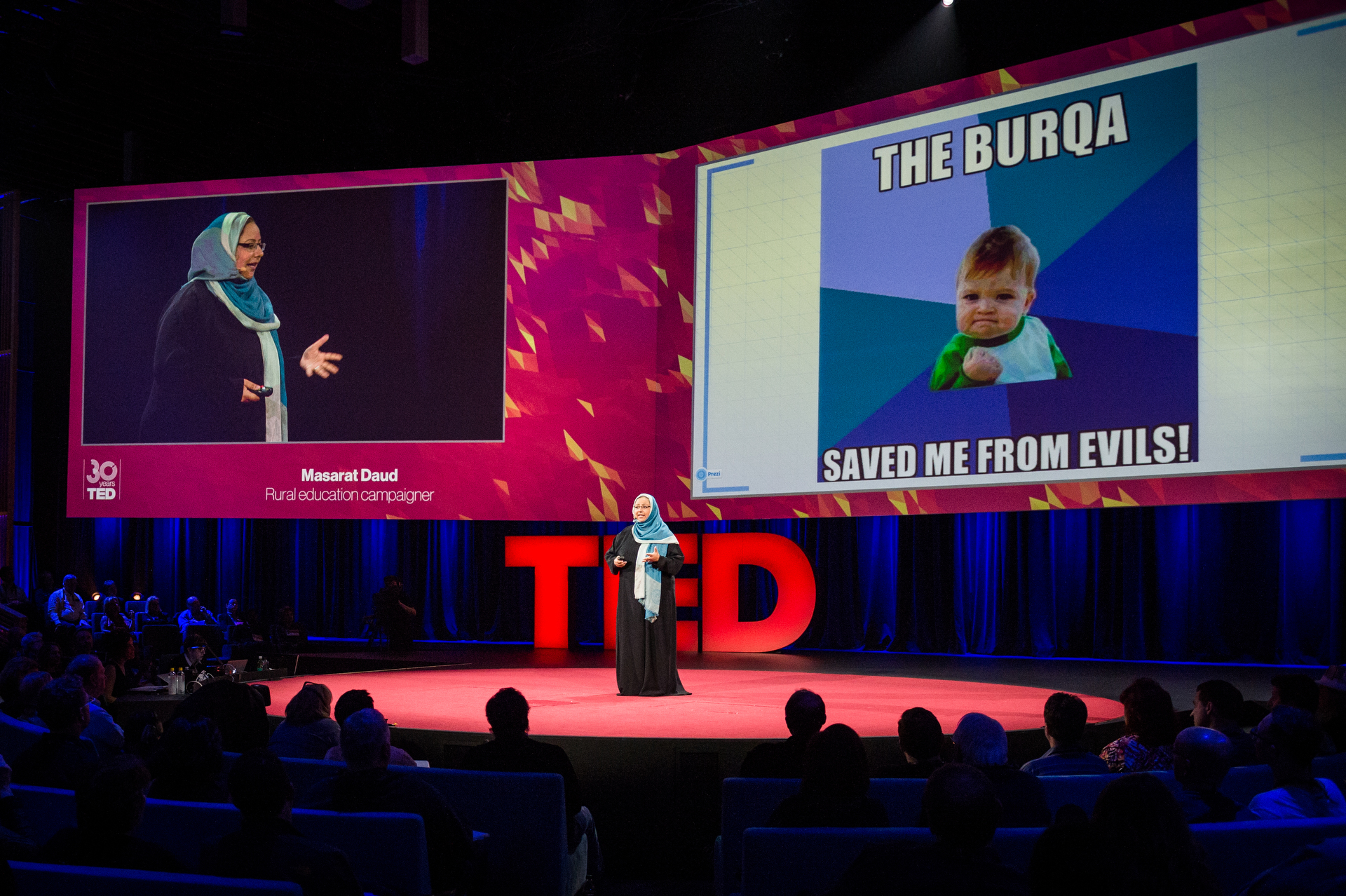Masarat Daud wears the burka — but she didn’t always. As a younger woman at university in Dubai, she thought: “People would think I was so religious, no one would want to be friends with me!” She wore western clothes, to the amusement of her parents. But her mother began suggesting she wear the burka, as she had, as her grandmother had, as part of a line of women reaching far back in her culture. So Daud tried it. And now it’s part of her.
“What I’m wearing right now,” she says, “is the burka in my cultural context.” As she points out, the concept of covering the hair, “it’s not an exclusive Muslim thing.” We must agree that the burka evokes a specific set of associations in the wider world, and Daud riffs through them: 9/11, terrorism, repression. But above that, she says, “My burqua is a very important part of my family’s heritage. And it’s also this sense of power and the confidence it gave me, the power to choose and to be myself and respect myself, to be the person that I really am.”
“We all wrestle with this balance of sartorial tensions,” she says. “Should I wear something that honors my cultural heritage, or should I wear something that conforms to other people’s perspectives and expectations?” It’s a provocative idea wrapped in a charming personal story from the indefatiguable leader of TEDxShekhavati, the largest rural TEDx event in the world.

Comments (3)
Pingback: Milsal McCaull » TED2014 emergent themes #2: Making Space for the Other’s Experience
Pingback: » Emergent themes at TED2014 (Post 1)